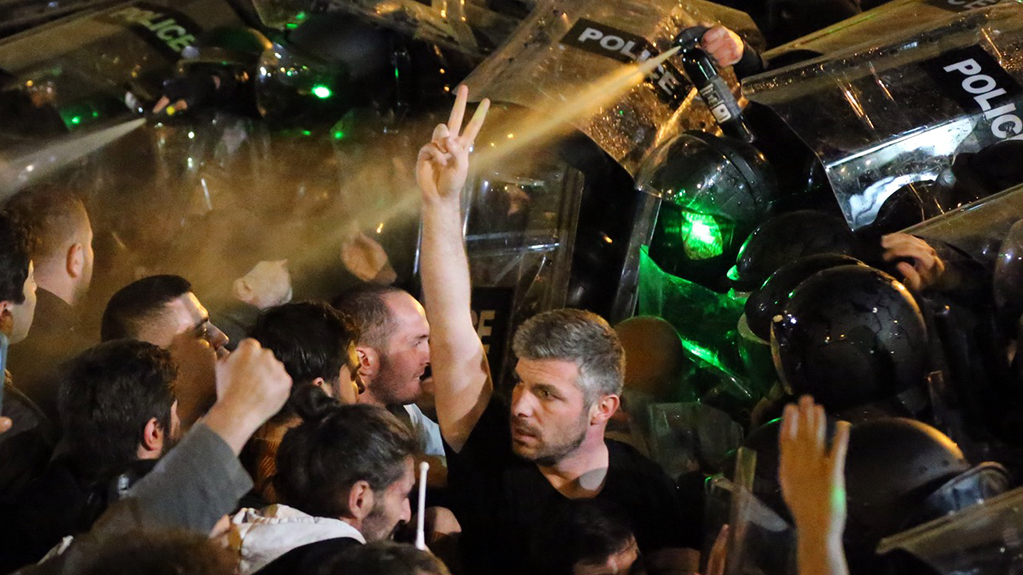The Tbilisi City Court has imposed a 2500 GEL fine on Irakli Kupradze, the oppositional Lelo general secretary. Kupradze was accused by the Internal Affairs Ministry of petty hooliganism and disobedience to a police officer's lawful request at a rally held against the Russian Law.
News
Trending stories
- 1 Former Prime Minister Garibashvili Sentenced to Five Years in Prison After Plea Deal
- 2 Otar Partskhaladze Charged with Organizing Murder of Businessman Levan Jangveladze
- 3 Shalva Papuashvili Says Georgian Dream Filed Complaint with BBC
- 4 Georgian Dream Party Further Tightens Grants Law, Introducing Up to 6 Years in Prison
"This is a continuation of political persecution and reprisal by the court. Obviously, in a situation where three police officers provide contradictory statements, the issue of their accountability should be raised. There wasn't even a dash cam recording, and the guilty verdict was based solely on conflicting testimonies. The influence of the Russian government, the clan court, and all the troubles that Bidzina Ivanishvili brought to our country must end in this country," said Irakli Kupradze.
"He was accused of violating the cordon; however, the footage shows that Irakli was not involved. It was incredibly absurd for the representatives of the Ministry of Internal Affairs to claim that an unarmed person could break through the cordon of several hundred special forces," said lawyer Tornike Artmeladze.
Irakli Kupradze was arrested on April 16 and imprisoned for 2 days. According to him, during and after the arrest, the policemen physically assaulted him, addressed him with obscene words, and humiliated him.
On April 19, during his speech in Parliament, Internal Affairs Minister Vakhtang Gomelauri stated that 40 people were detained administratively during the protests against the Russian Law.
On April 3, 2024, Georgian Dream once again initiated the Russian Law on Foreign Agents in parliament, which had been withdrawn a year ago due to thousands of protests, with a promise that it would never be accepted again. The Russian Law obliges independent media and non-governmental organizations, which work with grant support from international organizations and cannot be controlled by the government or related groups, to register as foreign agents. Protests against the Russian law have been taking place in Tbilisi, near the parliament, since April 15.
The European Union, the US State Department, the United Nations, and international organizations have called on the Georgian authorities not to adopt a law that does not align with the values of the European Union and that threatens the freedom and existence of the media and the civil sector.















